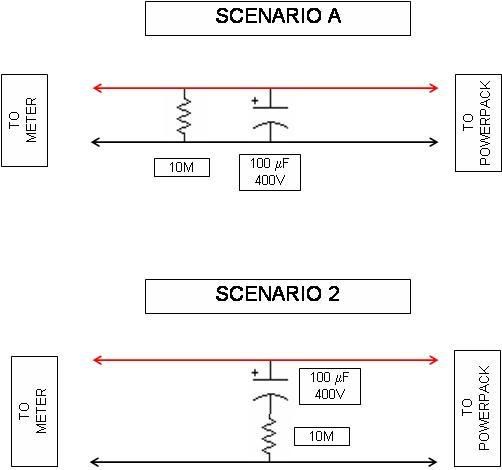jtexas
Fleet Admiral
- Joined
- Oct 13, 2003
- Messages
- 8,646
Another thread I asked why we test powerpacks by measuring "peak AC", when a capacitor discharge is always DC; this is the answer I got, which totally makes sense to me (a non-engineer):
Which begs the question: why would I need anything but a capacitor across my DC voltmeter leads to perform this test?
If the answer is, "no reason at all", the next question is, what kind of capacitor (capacitance, voltage, etc.) would work?
And the next question after that is, would that work to test the trigger output as well?
The capaciator is charged to roughly 300 volts DC. Which simply means it has stored a bunch of electrons. When the SCR is fired it causes the capacitor to discharge through the coil's primary winding as a short pulse of current. The rest of the time, the coil's primary effectively has no current. It takes a peak reading AC meter to read the voltage. Otherwise, the voltage level would be averaged for a reading which would be very low. The term AC can be somewhat misleading in that AC is short for alternating current. Which implies current flowing back and forth in opposing directions. The current from the power pack only flows in one direction. But, if you reference the measurement of that current as being the average level, the current does go in opposing directions past that point - thus AC.
Which begs the question: why would I need anything but a capacitor across my DC voltmeter leads to perform this test?
If the answer is, "no reason at all", the next question is, what kind of capacitor (capacitance, voltage, etc.) would work?
And the next question after that is, would that work to test the trigger output as well?




















